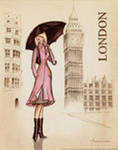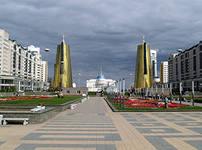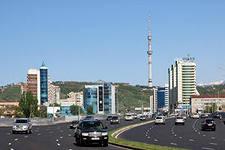
- •2Nd level – Pre-Intermediate Almaty. 2015 part II
- •1 Make questions by putting words in brackets in the right order.
- •1. Where___ your sister work?
- •Glossary
- •1. Learn by heart the poem
- •2. Part III.3. Texts for reading. Read and translate the text 1.
- •References
- •1. Where___ your sister work?
- •3. What_______ you talking about?
- •4. What does he do?
- •Glossary
- •References
- •2 Complete the questions about your brother/father with a verb in the present simple.
- •I know he is going to be successful. He is very__
- •3 He only thinks about himself
- •4 Write opposite adjective: hard-working
- •Glossary
- •References
- •1 Can you match the words to the descriptions?
- •Holidays
- •Glossary
- •References
- •Leisure time
- •Glossary
- •References
- •Glossary
- •References
- •Glossary
- •References
- •1 Put the correct article (a, an, the, or nothing) into the paragraphs below.
- •2 Choose the best two words for each sentence.
- •Glossary
- •References
- •Glossary
- •References
- •Include the information about :
- •Have you ever bought a present for birthday?
- •Verbs used with clothes
- •Glossary
- •References
- •Glossary
- •References
- •Infinitive [1, p.128]
- •The role of Internet
- •References
- •2 Match the jobs to the definitions.
- •Glossary
- •Glossary
- •References
- •Glossary
- •References
- •We are living faster, but are we living better?
- •Glossary
- •References
- •Glossary
- •References
- •1 Put in good or well.
- •Weather and climate
- •Glossary
- •References
- •2 Match the words and phrases that have the opposite meaning(Antonomy)
- •1 How can we save the environment of our city? Finish the sentences.
- •1.Animals are…
- •1 Animal parts odd one out.
- •Exercise 5 Read the first paragraph of the text and translate. [3, Topic 32, pp 169-170] celebrations and ceremonies
- •References
- •East or west, home is best.
- •Glossary
- •References
- •The homeland is more worth than gold.
- •Glossary
- •References
- •Block 1
- •Lexical grammatical tests
1 Animal parts odd one out.
|
fish |
lizard |
bear |
snake |
|
cow |
dog |
cat |
black bear |
|
cow |
horse |
polar bear |
sheep |
|
zebra |
leopard |
tiger |
coral snake |
|
tadpole |
frog |
shark |
angelfish |
![]() WOULD
LIKE TO
WOULD
LIKE TO
|
Use 1) Would like means want, but it is more polite. You can use it in sentences and questions: I’d like a biscuit. Would you like some tea? 2) You can also use it to talk about your dreams and ambitions .:I’d like to go to Japan. I wouldn’t like to live here! You can also use I’d love and I’d hate to talk about dreams: I’d hate to live in the countryside. I’d love to work with Simon. Form: 1) Would like is the same for all persons: I would like some tea. You would like some tea He / she / James would like some tea. We would like some tea. They / our clients would like some tea. 2)To make questions, invert the subject and would: Would you / James / your clients like some tea? 3)Use wouldn’t to make the negative form: I wouldn’t like to work there.
|
![]() Fill
in the words to complete the sentences using "would, would
like, would love or wouldn't like".
a.
You want to do something with your friend tonight. You
ask:
What __________to do tonight?
b. You are in a
restaurant and you ask for a glass of water.
________you bring me
a glass of water please?
c. You are experiencing how much you
want to go to Paris.
I ________to go to Paris.
d. don't like to work as a
waiter.
I __________to work as a waiter.
e.You
are offering your friend a sandwich.
___________a
sandwich?
Fill
in the words to complete the sentences using "would, would
like, would love or wouldn't like".
a.
You want to do something with your friend tonight. You
ask:
What __________to do tonight?
b. You are in a
restaurant and you ask for a glass of water.
________you bring me
a glass of water please?
c. You are experiencing how much you
want to go to Paris.
I ________to go to Paris.
d. don't like to work as a
waiter.
I __________to work as a waiter.
e.You
are offering your friend a sandwich.
___________a
sandwich?
Exercise 2 Write a congratulation to your friend.
 Model:
Model:
Dear
friends,
Our
best wishes for a Happy Holiday Season! *
We
hope that the coming year will bring you peace, good health, good
cheer and prosperity.
Alwaysyours
![]() Exercise
1 Listen and mark the sentences True(T) or False(F) [2.
T.3.05. p.83.]
Exercise
1 Listen and mark the sentences True(T) or False(F) [2.
T.3.05. p.83.]
|
№ |
|
T |
F |
|
a |
Becky came to Thailand to look for a work. |
|
|
|
b |
Becky runs a bar on the beach. |
|
|
|
c |
Becky is married to a Thai man. |
|
|
|
d |
Jeff is studying Thai. |
|
|
|
e |
Jeff wants to go home. |
|
|
Exercise
4 Retell the text using the following questions.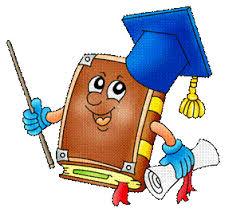
a. What jobs do Becky and Jeff do in Thailand?
b. What business does Becky run?
c. Who is Becky married to?
d. How long has Jeff been in Thailand?
e. Why hasn’t Jeff learnt Thai?

Exercise 5 Read the first paragraph of the text and translate. [3, Topic 32, pp 169-170] celebrations and ceremonies
Celebration is a joyful occasion for special festivities to mark some happy event. Every nation and every country has its own customs and traditions.
Englishman are proud of their traditions and carefully keep them up. Some ceremonies are traditional, such as the Changing of the Guard at Buckingham Palace, Trooping the Colour, the State Opening of Parliament. The Ceremony of Trooping the Colour is one of the most fascinating. It is staged in front of Buckingham Palace. In England the Queen opens Parliament once a year. She goes to the Houses of Parliament in the golden coach. She wears the crown and crown jewels.
The most popular and festive holiday is Carnival in Brazil. In fact, many people consider Carnival one of the world’s biggest celebrations. Each spring, on the Saturday before Ash Wednesday, the streets of Brazil’s largest city, Rio de Janeiro, come alive with wild parties, festivals and glamorous balls. About 3,000 performers, dance Sambadrome.
The people of Kazakhstan get energized to celebrate their national, traditional holidays and special occasions. They wear traditional clothes and enjoy holidays with games, horseracing, singing, dancing and much more. One of the most ancient holidays in the East is Nauryz. This holiday represents not only spring renewal but also friendship, love and fertility. Absolutely unknown people are greeting you wishing well-being. Celebrations and ceremonies are an ongoing part of life.
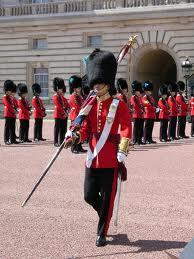
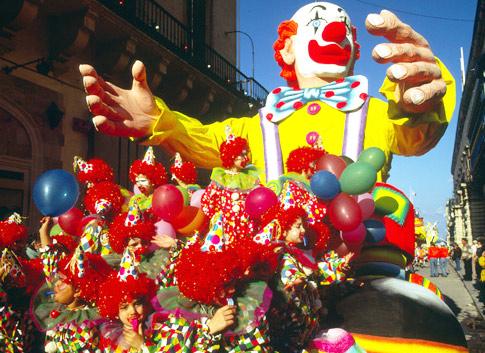
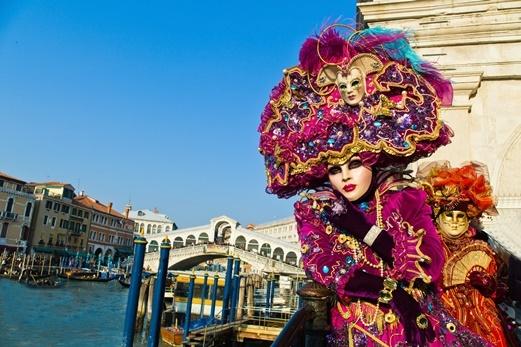
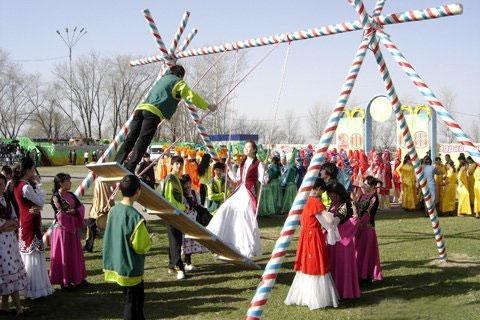
Exercise 6 Read the text and write suitable heading to each paragraph
![]() Exercise
7
Speak on given topics.
Exercise
7
Speak on given topics.
Cultural differences in the country where you’ve been.
Can you explain the proverb “When you in Rome, do as the Romans do”. What does it mean? Find the Russian or Kazakh equivalents of the proverb.
![]()
Exercise 8 Discuss the following questions in pairs or small groups:
Every country has its traditions and ceremonies. What country do you know best?
The most popular festivals or celebrations in your country
Places where take place
Special foods connected with the celebrations
Things that are done at this festival or celebration
Special songs associated with the celebration
![]()
We __________some tea.
has
wants
would like
doesn’t like
Sue ______ to make a pizza now.
doesn’t
b) wouldn't like
c) wanted
d) would to like
3. We _______ to have dinner.
a) doesn’t
b) wants
c) wouldn't to like
d) would like
4. I ___________ to get up late
would like
wants
will be
won’t
GLOSSARY
English
Russian
Kazakh
customs [ˈkʌstəmz]
традиция
салт дәстүр
to be proud of [tuː biː praʊd ɒv]
гордиться
мақтану
peculiarities [pɪˌkjuːlɪˈærɪtiz]
особенности
ерекшеліктер
accompany [əˈkʌmpəni]
соправождаться
алып жүру
central heating [ˈsɛntrəl ˈhiːtɪŋ]
центральное отопление
орталық жылу
double-decker [ˈdʌblˈdɛkə]
двухэтажный
екі қабатты
a fireplace [ə ˈfaɪəˌpleɪs]
каминь
пеш
bands [bændz]
группа
топ
guard [gɑːd]
караул
қарауыл
queuing [ˈkjuːɪŋ]
очередь
кезек
LIW
1. Texts for reading. Read and translate the text-27.
2. Write a letter to your pen-friend.
An English friend of yours has asked about national holiday of your country. Write about Nauryz with more details.
History of the word “ Nauryz.”
The ingredients of the “ Nauryz kozhe”
National games
Office hours
1 Grammar exercises [1,Exercises 1(a,b,) p 133
2 Faster, faster . Ex 1,2,3 [ 3.p35]
References:
Main literature
1. “New English File” by Clive Oxenden and Christina Koenig for Pre-intermediate level. Student’s book.Oxford University Press. 2010.
2. New Inside out by Sue Kay & Vaughan Jones for Pre-intermediate Student’s book. Macmillan, 2013
Additional literature
3. “New English File” by Clive Oxenden and Christina Koenig for Pre-intermediate level. Work book.Oxford University Press. 2010.
4. New Inside out by Sue Kay & Vaughan Jones for Pre-intermediate Work book. Macmillan, 2013
5.“Essential grammar” R.Murphy. Second edition. Pre-Intermediate level. Cambridge University Press. 2006
6.http://www.wicked.org.nz/Themes/Hot-topics/Celebrations-and-festivals
HAND-OUT № 58
Discipline: English as a foreign language Credits: 2
Level: Pre-Intermediate Practical lesson
Lexical theme: Big cities
Grammar: Comparatives
Teacher: Zhakipbekova Dinara Kelsinbaevna
 Warming-up:
What does the saying mean:“A
great city is that which has the greatest men and women”?
Warming-up:
What does the saying mean:“A
great city is that which has the greatest men and women”?CONSOLIDATION.
Label the pictures with the adjectives in the box.
annoyed bored confused embarrassed frightened relaxed surprised tired

COMPARATIVES []1, p. 132]
Adjective
Comparative
cold
colder
one-syllable: + er (Comparative)
hot
big
hotter
bigger
one vowel + one consonant: double final consonant
pretty
busy
prettier
busier
consonant + y:
y+ ier
beautiful
relaxed
more beautiful
more relaxed
two or more syllables:
more (Comparative) + adjective
good
better
Irregular
bad
worse
far
further
You use comparative adjectives to compare people/ things with other people/ things.
Fernando Alonso is older than Lewis Hamilton.
My brother is taller than me.
You use not as + adjective + as to make negative comparisons.
Golf is not as dangerous as motor racing.

Exercise 1 Write comparative sentences.
Example: London is /cold / Manchester.
London is the colder than Manchester.
my / sister is thin / me.
I’m / busy / this week / last week.
Cambridge is / far from London / Oxford.
I did the second exam / bad / the first.
Chelsea played / well / Arsenal.
Exercise 2 Compare two cities of Kazakhstan using new words.
Exercise 3

Now listen to Tim Moore talking about what happened in London. [1.T. 4.10.p. 121.]
Fill in the listened text.
№
True
False
1.
Tim stopped a man who was walking quite slowly down the road
2.
Tim said, “Excuse me, could you tell me the address of Charing Cross station”.
3.
The man said that he hasn’t time.
4.
Tim asked a businesswoman who was walking towards the station.
5.
The red bus was very cheep.
Exercise 4 Retell the text using the following questions.
a. Who did he ask first?
b. What did the man say?
Who did he ask next? What happened?
What he did buy? Where?
How much was it?








